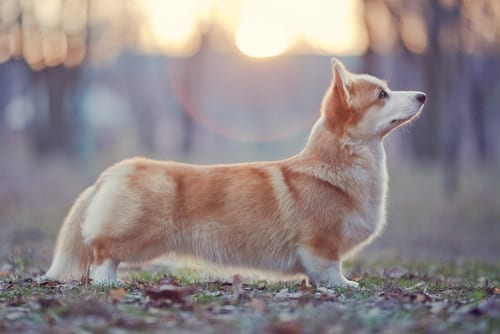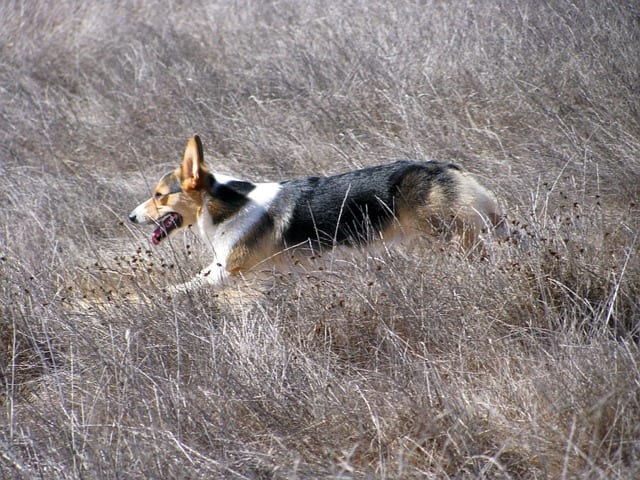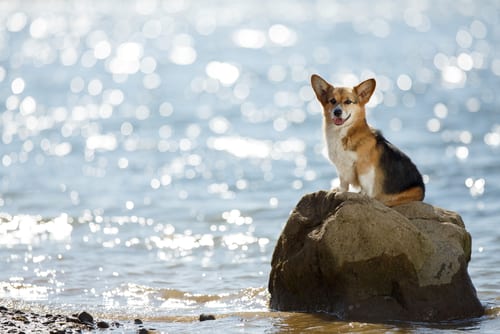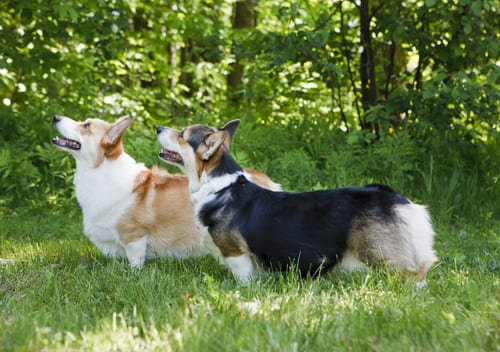Pembrokes are known as the tailless of the two Corgi breeds and although they come from the similar backgrounds, they’re two separate breeds entirely. Pembrokes are becoming increasingly popular due to their adorable looks and charismatic personalities, so we’d thought you’d like to know a little more about them!
#1 – They’re the Younger Corgi

Although both the Pembroke and Cardigan Welsh Corgis originated as farm dogs in Wales, it’s thought that the Cardigan has been used slightly longer than the Pembroke. Even still, the Pembroke has documentation dating back to 1107 AD.
#2 – They’re Both Naturally Bobtailed & Docked

Pembrokes are the tailless version of the Corgi, both naturally and by docking at puppyhood. Some Pembrokes carry the genetic mutation for a natural bobtail and many breeders like to keep this in the gene pool. However, breeding two naturally bobtailed dogs could result in other defects, so it’s not recommended. Most Pembrokes, however, have tails that were docked or banded at puppyhood so early that they experience no pain or discomfort.
#3 – They Herd Cattle, Pigs & Poultry

It’s been noted by many Pembroke enthusiasts that they aren’t as efficient as collie breeds for sheep herding, as they’re too excitable. That said, their original purpose was herding cattle at which they do exceptionally well. Pembrokes are perhaps some of the best poultry herding dogs around and serve as excellent livestock guardians for small stock. They’ve also been successfully trained and used as pig herders.
#4 – They’re Experienced Ratters

Another job Pembrokes were bred for is exterminating vermin at the farm. Because of their spitz heritage, they are excellent ratters and many owners still report their own dog’s ability to find and catch rats and mice today. They kept farms protected from pesky rodents that prey on young poultry and their eggs.
#5 – One Corgi, Two Corgwn

The plural for the word “Corgi” isn’t actually “Corgis,” as is so often used. The Welsh word that should be used is “Corgwn,” pronounced “cor-gen,” similar to “oxen.” While even most enthusiasts today still use “Corgis” most commonly, you’ll get extra points if you know the correct verbiage!
 Toledo, United States.
Toledo, United States.